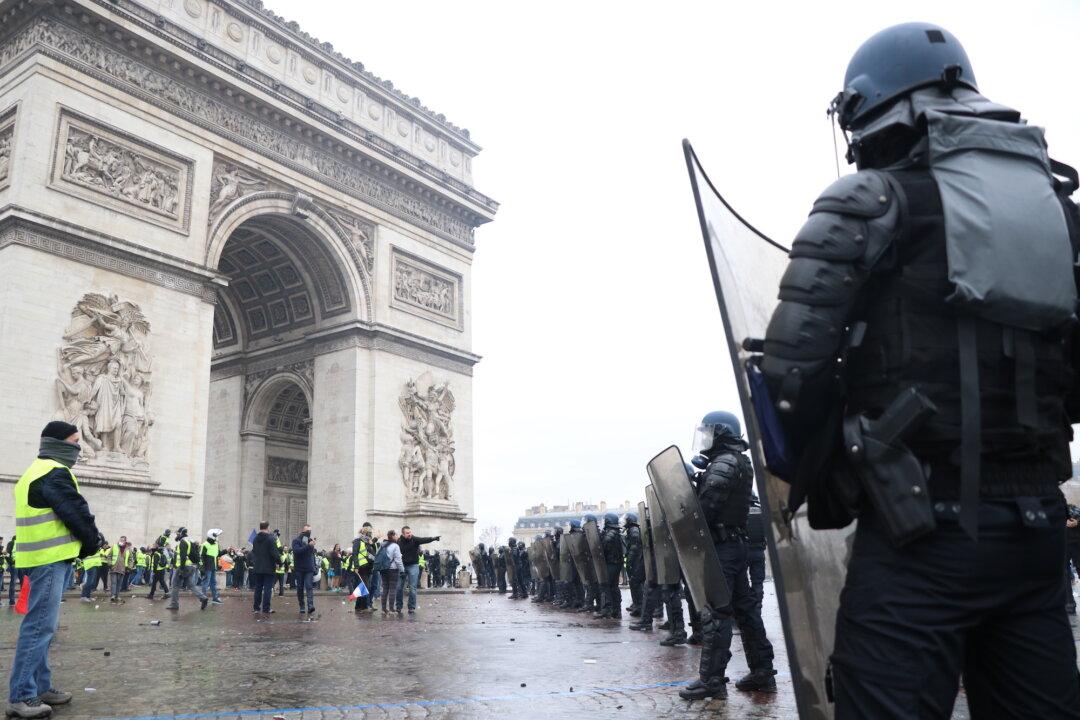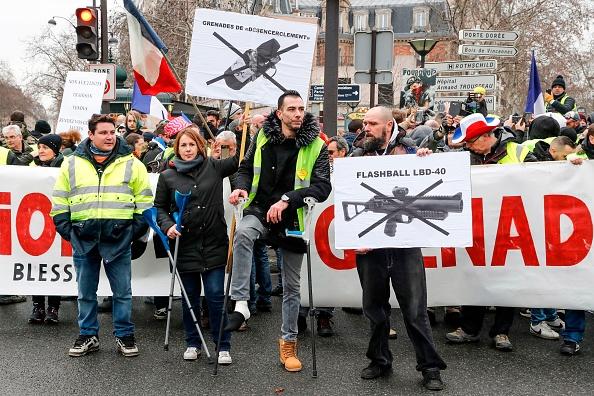PARIS—It’s a very chaotic scene at the Place de l'Etoile, the tourist-favorite junction in the heart of Paris that the Arc de Triomphe has been overlooking for close to two centuries.
Lines of police officers face hundreds of protesters wearing yellow vests. A female police officer shouts with a megaphone, “Last warning, we’re going to charge.” Her voice is subdued by the crowd, which soon breaks out in an improvised rendition of “La Marseillaise”—a revolutionary battle song from the 18th century that is the French national anthem.





